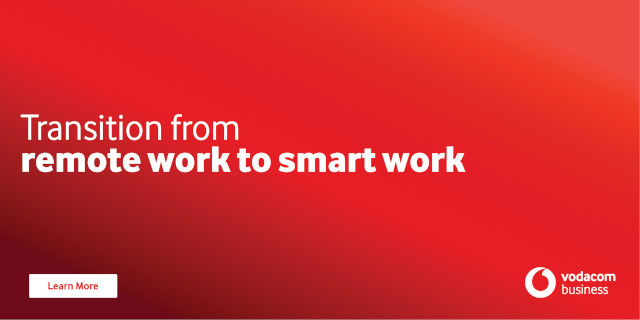Innovative cross-border payment platforms key for promoting SME agility
By Industry Contributor 5 March 2024 | Categories: news
News sponsored by Vodacom Transformation of Work:
Business owners of Small to Medium Enterprises (SMEs) in South Africa face numerous hurdles to ensure business continuity. There are, however, solutions they can adopt to rise above a constrained economy characterised by weak revenues and subdued commodity prices, writes Ola Oyetayo, co-founder and Chief Executive Officer at Verto.
Contributing over R900 million to the South African economy, Small and Medium Enterprises (SMEs) are crucial in supporting the country’s fiscal health and socioeconomic development. Beyond the sheer monetary value they inject into the economy, SMEs serve as engines of growth, job creation, and innovation. By driving entrepreneurship and fostering a culture of enterprise, SMEs help diversify economic activity, reduce dependency on traditional sectors, and promote inclusive economic growth.
However, SMEs face countless challenges that threaten business sustainability. From access to finance and electricity constraints to competitive markets and skills shortages, the recent 2024 budget speech has underscored a bleak domestic outlook.
Despite the challenges, determined SMEs must continue striving to carve out their niche in the South African business arena, fueled by innovation, resilience, and a drive to make a meaningful impact on their communities.
Influencing consumers’ back pockets
While the 2024 Budget Speech spared South Africans from tax increases, with no general fuel levy increases expected for the 2024/2025 period, and resulting in a tax relief of approximately R4 billion2, the implications of the sluggish economic growth projections mean that SMEs need proactive measures to weather the storm.
This tepid growth environment translates to subdued consumer spending, tighter credit conditions, and heightened uncertainty, all of which pose formidable challenges for SME owners striving to sustain and grow their businesses.
One such challenge lies in the realm of consumer spending. Despite the government's decision not to impose increases to the general fuel levy, the absence of adjustments for inflation provides little reprieve for cash-strapped consumers. Consequently, SMEs must brace for a potential downturn in consumer demand, necessitating innovative strategies to mitigate the adverse effects on their bottom lines.
Unlocking opportunities for SMEs in global trade
As the global marketplace becomes increasingly interconnected, more SMEs are engaging in cross-border transactions to make or receive payments in foreign currencies for a variety of purposes, ranging from the purchasing of raw materials, paying overseas suppliers, fulfilling export orders, or repatriating revenues earned from international sales.
The considerable expense linked with cross-border transactions is one of the most significant challenges facing SMEs today, with conventional banking establishments frequently imposing steep charges for currency conversion and 5-7% on international transfers. These can swiftly diminish painstakingly earned profits, leaving SMEs with reduced funds to drive business continuity.
By leveraging innovative and efficient payment platforms with features such as multi-currency support and real-time exchange rate monitoring, SMEs can mitigate the risks associated with currency fluctuations and a weak rand, and streamline their international transactions - all while saving costs.
Moreover, the emphasis on tax relief and fiscal stability in the budget presents an opportunity for SMEs to optimise their cross-border payment strategies. By aligning with tax-efficient payment practices and leveraging platforms that offer transparency and compliance with regulatory requirements, SMEs can enhance their operational efficiency and minimise unnecessary costs associated with cross-border transactions.
Charting the path forward
With the estimated real GDP growth hovering at a mere 0.6% - down from the projected 0.8% during the Medium Term Budget Policy Statement (MTBPS)2, SMEs must brace themselves to overcome the impact of South Africa’s sluggish economic expansion.
While the 2024 budget speech sets the stage for economic recovery and growth, for the foreseeable future, SMEs engaged in cross-border payments must remain agile and proactive in navigating the challenges and opportunities presented by the evolving economic landscape.
By embracing digital payment solutions and strategic financial management practices, they can position themselves for success in the global marketplace, driving sustainable growth and competitiveness in the long term.
Most Read Articles

Have Your Say
What new tech or developments are you most anticipating this year?




